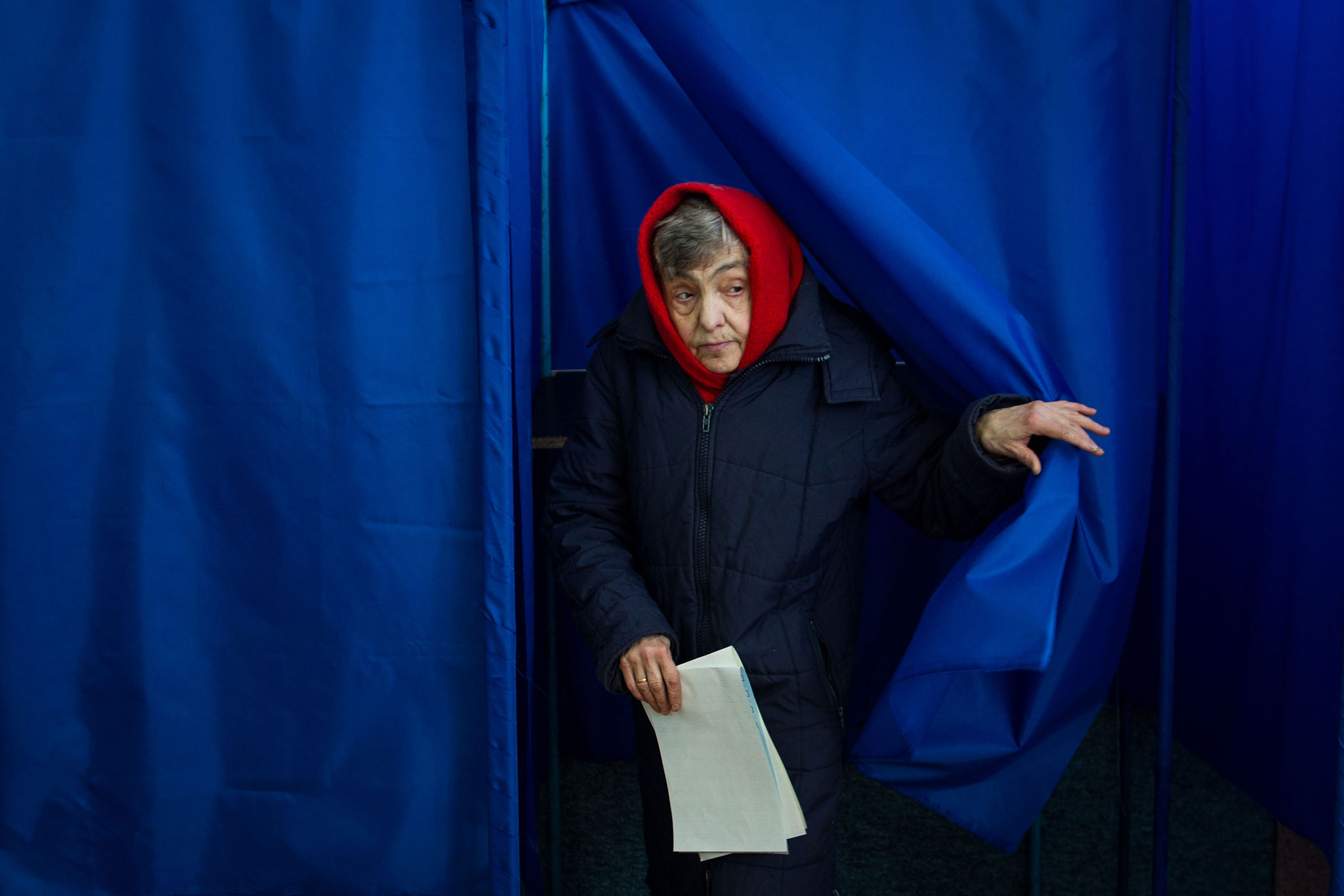
On Sunday night, as the votes in Ukraine’s parliamentary elections were being tallied, President Petro Poroshenko went on television to congratulate his citizens on the successful ballot and, citing early results, to highlight one of the milestones the country had crossed: Ukraine’s Communist Party, a political holdover from the nation’s Soviet past that had always championed close ties with Russia, had failed to win a single parliamentary seat.
“For that I congratulate you,” the Ukrainian leader told his countrymen. “The people’s judgment, which is higher than all but the judgment of God, has issued a death sentence to the Communist Party of Ukraine.” For the first time since the Russian revolution of 1917 swept across Ukraine and turned it into a Soviet satellite, there would be no communists in the nation’s parliament.
Their defeat, though largely symbolic, epitomized the transformation of Ukraine that began with this year’s revolution and, in many respects, ended with the ballot on Sunday. If the communists and other pro-Russian parties had enormous influence in Ukraine before the uprising and a firm base of support in the eastern half of the country, they are now all but irrelevant. The pro-Western leaders of the revolution, by contrast, saw a resounding victory over the weekend for their agenda of European integration. “More than three-quarters of voters who cast their ballots showed firm and irreversible support for Ukraine’s course toward Europe,” Poroshenko said in his televised address.
With half the ballots counted on Monday, his political party was projected to get the most votes and more than a quarter of the seats in parliament. The party of his ally, Prime Minister Arseniy Yatsenyuk, was in a close second place, setting them up to form a ruling coalition of Westernizers and Ukrainian nationalists. They will likely need no support from the shrunken ranks of the pro-Russian parties in order to pass legislation and constitutional reform.
In many ways they have Russian President Vladimir Putin to thank for that success. Since the revolution overthrew his allies in Ukraine in February, Putin has alienated most of the Ukrainian voters who had previously supported close ties with Moscow. His decision to invade and annex the region of Crimea in March, when Ukraine was just emerging from the turmoil of the revolution, awakened a hatred toward Russia in Ukraine unlike any the two countries had seen in centuries of unity and peaceful coexistence. Putin’s subsequent support for Ukrainian separatists, who are still fighting to turn the country’s eastern provinces into protectorates of Moscow, sealed the divide between these once fraternal nations.
Nowhere has that been more apparent than in the results of Sunday’s ballot. The only party that made it into parliament with an agenda of repairing ties with Moscow was the so-called Opposition Bloc, which was forecast to take fourth place with less than 10% of the vote. Only a year ago, its politicians were part of the ruling coalition in Ukraine made up of the Communist Party and the Party of Regions, whose leader, Viktor Yanukovych, had won the presidential race in 2010 on a platform of brotherly ties with Russia. Now Yanukovych, who was chased from power in February, has taken refuge in Russia at Putin’s invitation, while his Party of Regions was so certain of defeat in this weekend’s elections that it decided not to run. Whatever chance remained for Putin to keep his allies in power in Ukraine now looks to have been lost, and with it he loses his dream of forming a new political alliance made up of the biggest states in the former Soviet Union.
Putin’s narrative about far-right radicals taking power in Ukraine — during a speech in March, he referred to the leaders of the revolution as a bunch of “neo-Nazis, Russophobes and anti-Semites” — was also exposed as a fabrication in the course of Sunday’s ballot. Though hard-line nationalists did play a key role in the revolution, few of them made it into parliament. The right-wing Svoboda (Freedom) Party is expected to get around 6% of the vote, roughly the same as the populists from the Radical Party, just squeaking by the 5% minimum needed to enter the legislature. The ultra-nationalist party known as Right Sector, which Russian state media has cast as the demonic force behind Ukraine’s new government, failed to make it past the post with its projected 2%.
But the real threat to Russia was never from the demagogues of the Ukrainian right. It was from the politicians like President Poroshenko who are determined to set Ukraine on a path toward joining the European Union. That path will not be easy, as Western leaders are hardly eager to welcome Ukraine’s failing economy and its 45 million citizens into the E.U. But the national consensus behind European integration, and the lasting break with Russia that this agenda entails, is now stronger than at any point in Ukraine’s post-Soviet history.
More Must-Reads from TIME
- Cybersecurity Experts Are Sounding the Alarm on DOGE
- Meet the 2025 Women of the Year
- The Harsh Truth About Disability Inclusion
- Why Do More Young Adults Have Cancer?
- Colman Domingo Leads With Radical Love
- How to Get Better at Doing Things Alone
- Michelle Zauner Stares Down the Darkness
Contact us at letters@time.com